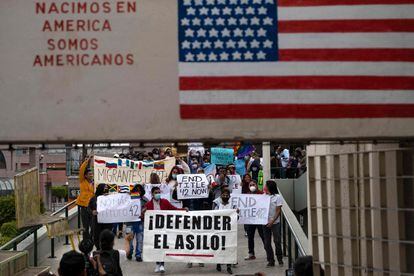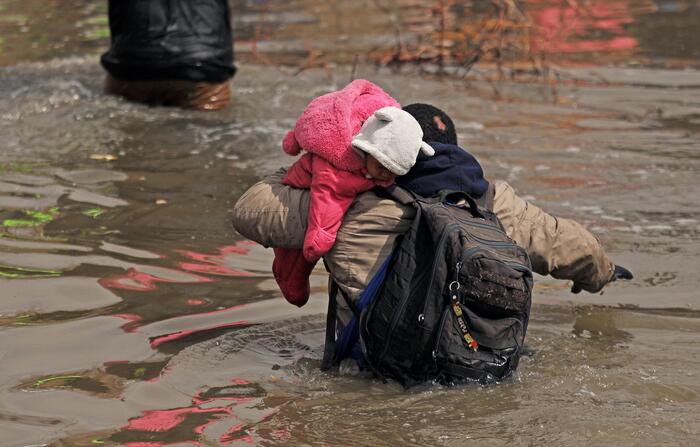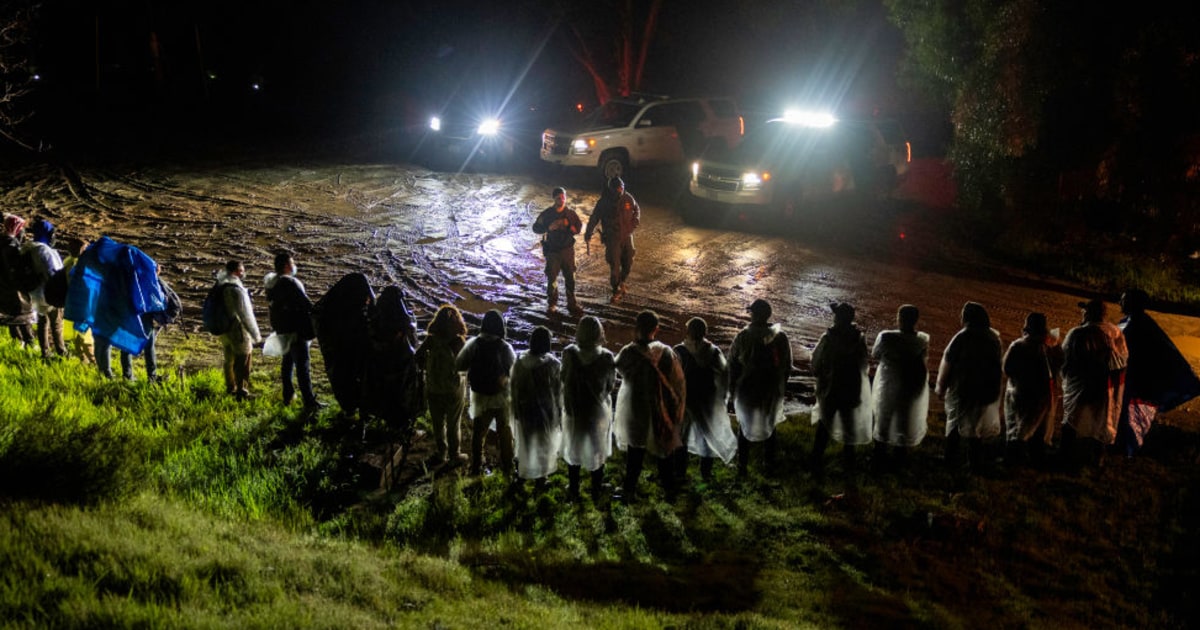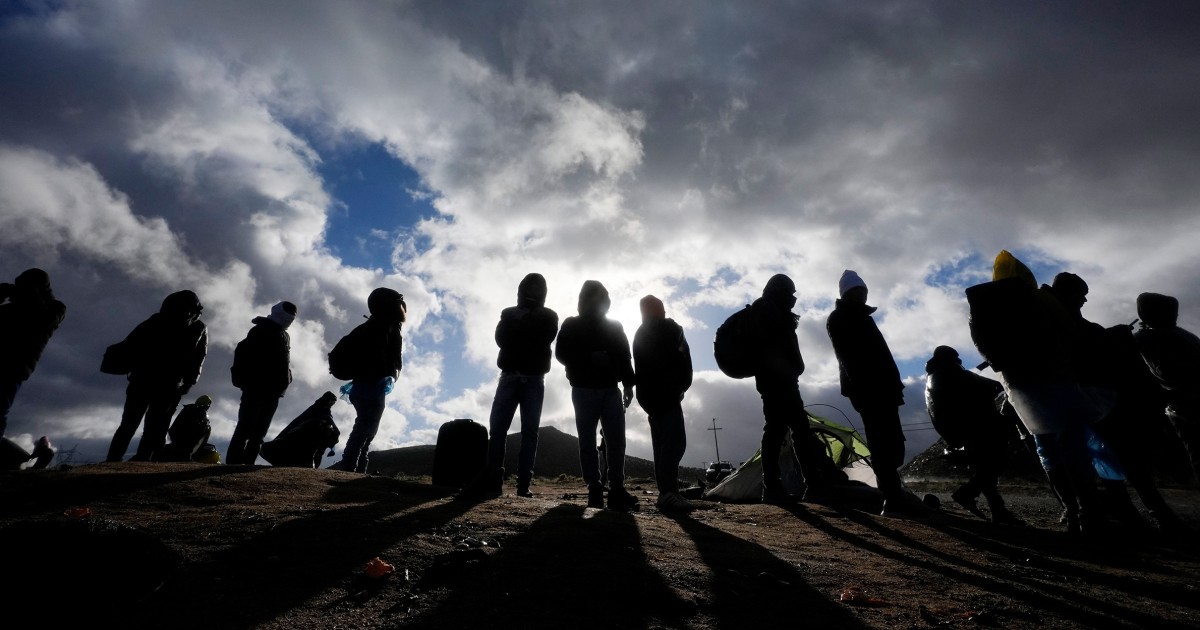Immigrant protests, all-time highs in arrests and asylum claims, deaths of people desperate to make their way on risky routes to the United States.
The decision of a judge in Louisiana to maintain Title 42, an exceptional measure promoted by Donald Trump that has paralyzed the US reception system for two years and has triggered express deportations under the pretext of containing the covid-19 pandemic, has had a full impact on the northern border of Mexico.
The end of the hot returns was scheduled for this Monday, but the attempt by the Joe Biden government to resume asylum procedures has collided with the legal blockade and in the process has extinguished the hope of tens of thousands of migrants who have been stranded since months ago, with no prospect of the wait ending.
Mexican authorities fear the bottleneck will translate into more desperate and dangerous moves to jump the wall, higher profits for traffickers and more pressure on border cities.
“We are still suffering the ravages of the Trump Administration,” laments Enrique Lucero, municipal director of Tijuana Migrant Services.
“What used to last two weeks is now taking two years, it is the longest migrant transit that has been seen in the history of the city,” he adds.
municipal director of Attention to the Migrant of Tijuana.
“What used to last two weeks is now taking two years, it is the longest migrant transit that has been seen in the history of the city,” he adds.
municipal director of Attention to the Migrant of Tijuana.
“What used to last two weeks is now taking two years, it is the longest migrant transit that has been seen in the history of the city,” he adds.
"No more Title 42" and "Defend asylum" were some of the slogans of a hundred immigrants who marched this weekend to the San Isidro port of entry, the largest border crossing between Tijuana and San Diego, the busiest border of the world.
Participating in the demonstration were members of the LGBT community, people who left Russia and Belarus as political refugees, Central Americans fleeing violence and poverty, Haitians who have traveled thousands of kilometers across the continent before crowding at the gates of USA.
"We don't know what's going to happen now," Lucdonald Munoma, a 31-year-old migrant from Haiti, told AFP.
Days before, the protests were outside the US consulate and this Monday more peaceful demonstrations have been called.
in Ciudad Juarez,
A demonstration of immigrants and asylum seekers in Tijuana (Mexico), on May 22. GUILLERMO ARIAS (AFP)
Esmeralda Siu Márquez, from the Coalition for the Defense of Migrants, assures that the border is a pressure cooker and that the environment is more tense every day.
"People are sad, confused and very desperate," she says.
The decision, however, was made hundreds of kilometers away, behind the scenes of where its consequences can be seen.
"Louisiana does not have a border with Mexico, they do not even experience this phenomenon," she laments.
The United States has resumed practically all the activities that were paralyzed during the pandemic: students have returned to schools, mass and sports events show crowded images, masks are no longer mandatory on planes and airports.
The reception system, on the other hand, remains armored.
"This is political, it has a political background," says Siu Márquez.
North of the border, political calculations are multiplying as a result of the immigration crisis, one of Biden's main headaches ahead of the November elections, in which the Lower House and more than a third of the Senate will be renewed.
But further south the consequences are tangible.
A Cuban migrant drowned at the end of March on the beaches of Tijuana, while trying to swim to the other side.
The bodies of three Hondurans, a Mexican and an unidentified person were found the week after they dehydrated inside a train car in Piedras Negras, on the border between Texas and Coahuila.
A 36-year-old Salvadoran man and his seven-year-old son died just a few hours ago drowned while trying to cross the Suchiate River, on the border of Mexico and Guatemala.
This same day, civil organizations shared images of migrant barges that continue to try to cross.
The closure of legal channels is fertile ground for increasingly risky routes to flourish.
“With or without Title 42 there will continue to be migrants, we will continue to see these accidents,” says Lucero.
And the diagnosis is shared by former senior officers of the US border patrol, civil associations and the
coyotes
or
smugglers themselves
, which have increased their rates in human trafficking.
The United States has broken the historical maximum of arrests in a period of 12 months and in April alone it arrested some 234,000 immigrants without papers, more than 94,000 were deported under Title 42. Since the pandemic began, the number of undocumented immigrants detained by US authorities is close to two million, according to official figures.
Faced with pressure from the White House to tighten surveillance and the blockade that exists in the United States, the numbers of arrests and asylum applications have also broken records in Mexico: more than 131,000 people have asked to stay in 2021, triple that of the year previous.
“The most worrying thing for Mexico is that the Government should sit down to see how it can improve the situation of migrants in terms of access to housing, health and education,” says Siu Márquez, “all the promises that have been made have not yet been fulfilled. have guaranteed."
UNHCR, the United Nations refugee agency, has insisted for months that the United States end express deportations for health reasons.
Even with the end of Title 42, expectations are measured:
It would open just a crack and start a slow release of hundreds of thousands of requests, most possibly rejected.
While a political and legal battle is being waged in the US, the UN reports that the American continent already has 18 million people who have fled their homes, among an exodus of 100 million displaced people around the world.
subscribe here
to the
newsletter
of EL PAÍS México and receive all the informative keys of the current affairs of this country









/cloudfront-eu-central-1.images.arcpublishing.com/prisa/AC3TY3HH2RHV7OOOEZIFQVHRV4.jpg)